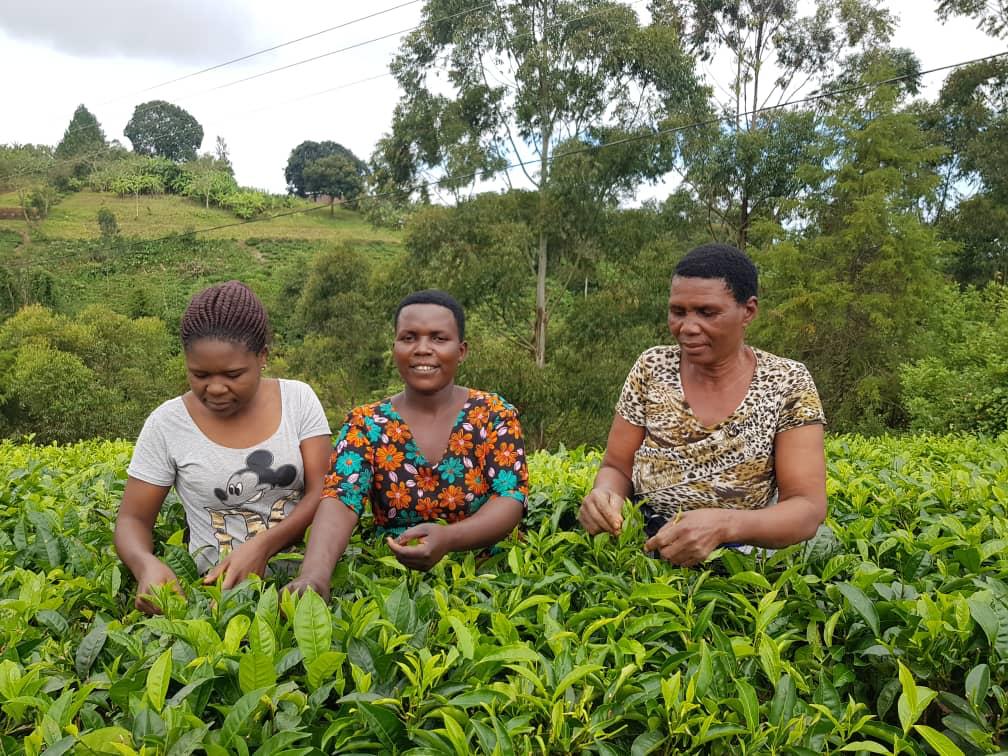Highlights

Coffee
Our coffee projects in the region prioritized initiatives to increase farmers access to productive resources to improve their productivity and profitability. In Kenya and Tanzania 56 coffee demonstration plots were established to enhance knowledge transfer. In Tanzania, 611,223 coffee seedlings were multiplied and distributed through our project supported on-station and farmer-managed nurseries. In Kenya and Uganda, farmers reported increased productivity from an average of 2 to 3.4 kg of cherry yield per tree resulting in increased incomes during the 2020/21 crop year.

Tea
Initiated collaboration with East African Tea Trade Association (EATTA) through our RECLAIM Sustainability! Programme. EATTA will facilitate the establishment of tea multi-stakeholder platforms (MSPs) in Kenya, Malawi, Mozambique and Uganda to foster dialogue on sector challenges and sustained advocacy towards the development and/or implementation of policies and regulations to promote environmental, social and economic sustainability.

Cotton & textiles
In the Bottom-Up project, we reached 4,315 factory workers with environmental and social sustainability training to improve the working conditions in factories and improve ecological conservation.
Through our Better Mill Initiative and Green Tanning Initiative in Ethiopia, we worked with factory managers and workers champions to sensitize 45,065 factory workers on occupational health and safety resulting in improved working conditions.

Leather
Bulk trails for chrome-free leather production were successfully completed in Batu Tannery. The process aims to enhance cleaner/eco-friendly leather production, and to improve labor conditions and business management of tanneries in Ethiopia.
Twenty-six leather companies are now listed on the Ethiopean Leather Platform to enhance linkages with local and international markets.

Fruit & vegetables
One thousand horticulture growers are trained in financial literacy and business acumen in four counties (Nakuru, Bomet, Nyandarua and Kirinyaga) and 50 growers are linked with input financing providers in the potato and tomato value chains in Kenya.

Food products
Eighteen bean seeds multiplication demonstration sites were established and accessed by farmers in Uganda to enhance adoption of good practices (soil fertility management, good agronomy, crop treatment and control measures) in the value chain.

Dairy
5,516,173 litres of milk were aggregated through three dairy hubs established in three cooperatives to enhance income diversification for coffee farmers. The hubs generated an equivalent of 1,558 thousand Euro in revenues. An additional three dairy collection centres (hubs) were established and benefited 1,195 farmers.

Gold
A baseline assessment on Environmental, Social and Governance (ESG) metrics was conducted in 10 project mines. A plan for mercury-free implementation, mercury-free/management, mercury-free flow sheet, geological data and mine profile summaries based on environmental, social and governance results was developed.
Results
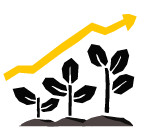
76,000
Farmers with improved yield (kg/ha)

255,000
Hectares under sustainable management
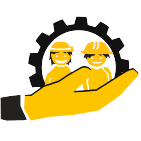
35,000
Workers and miners with improved working conditions
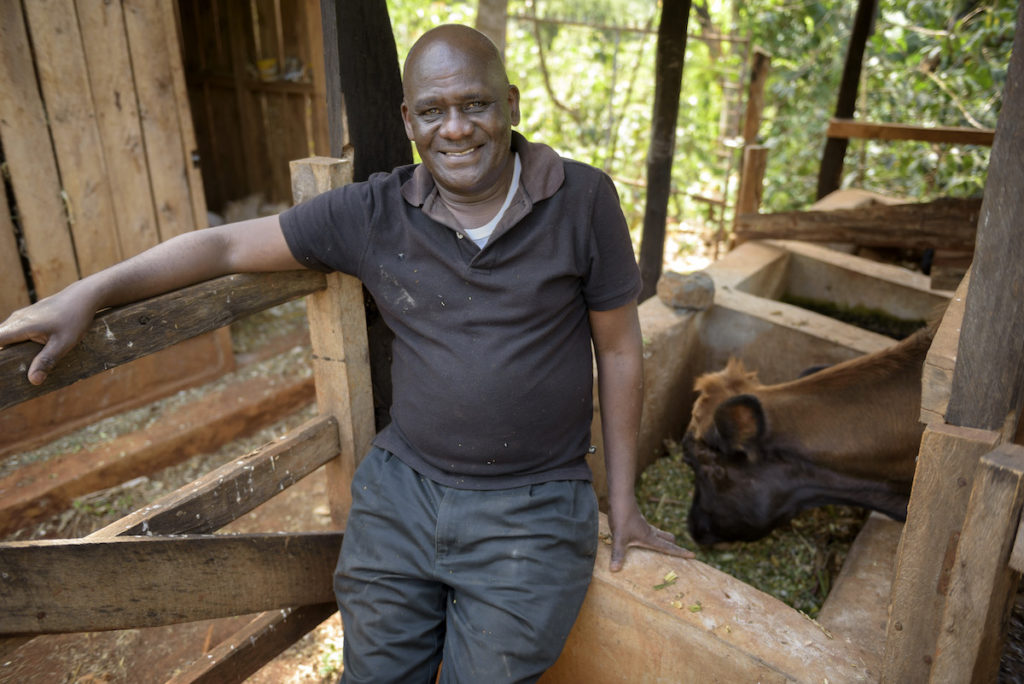
Our work
Co-creating solutions for sustainable impact
To achieve our vision, we work internally and externally, through our partners and communities. Our impact is realized by co-creating and promoting sustainable solutions, and is accelerated by the zeal among the communities we work with. Everyday, we work to drive sustainable development through four interconnected levels – Good Practices, Sustainable Business Ecosystems, Market Uptake and Enabling Policy Environment. Below are some of the key highlights of our work in 2022.
Throughout 2021, Solidaridad in East Africa deployed its tried-and-tested three-tier training model for outreach to farmers, workers and miners. Cumulatively, we reached 245,441 farmers, workers and miners, exceeding the targeted 242,042. The training model embeds skills and knowledge within communities, enhancing uptake and sustainability by using interactive learning tools including peer-to-peer learning, demonstration plots, visual posters and dialogue in local languages. The peer-to-peer approach ensured accessibility of knowledge thus enabling target beneficiaries to acquire practical knowledge. Through this model, Solidaridad has built a pool of local community champions to promote and support our beneficiaries to embrace our interventions to promote good practices.
Land subdivision is rampant in East Africa, and most farmers own between 0.5 to two ha of land. Solidaridad has promoted sustainable land management practices, such as minimum tillage, planting shade trees, and planting indigenous trees on their farmlands. Cumulative data from 2021 showed that an estimated 225,325 ha were put under sustainable management practices indicating progressive adoption of good practices. During the same time, Solidaridad, with support from Rabobank piloted a carbon sequestration project where 1,104 farmers were supported to consolidate their efforts on agroecology through the Acorn carbon platform. The carbon removal units (CRUs) are being developed based on actual carbon stored in trees (a unit represents 1tCO2 removed) so the 1771 CRUs generated in 2021 in Uganda indicates that we removed 1771 tCO2 from the atmosphere. Following a successful pilot, we are set to make the first payments for the accrued carbon credits to smallholder coffee farmers in Uganda in 2022. The pilot will also be scaled up in Kenya through the Danida Market Development Partnerships (DMDP) funded Traceable Organic Coffee from Kenya (TRACE Kenya) project and the Dutch National Postcode Lottery Fund funded projects in Kenya and Uganda. We anticipate that similar pilots will be expanded into our regional work in the tea value chain.
In sub-Saharan Africa, cooperatives enhance farmers’ access to financing, market information, farming inputs and sustainable production practices. More importantly, cooperatives’ collective bargaining power improves the marketing of produce on behalf of their members. They are a critical vehicle for pooling financial and technical resources, thus spreading costs and drawing from the collective members’ experiences. In 2021, we reached 295 local service providers who reached 31,233 farmers. Most of the service providers are primary cooperative societies. Through our strategic interventions, we fostered effective compliance and risk management, good governance, as well as enhanced leadership to maximize cooperatives’ opportunities for business growth and unlock the potential of smallholder farmers in the region, while minimizing risks (e.g. inefficient use of resources). In 2022, Solidaridad will target additional small-medium enterprises across all target commodities in the region through scaling and replication of high impact interventions including leadership and governance training, and business-to-business (B2B) linkages among others.
In 2021, the global expert team on Supportive Business Ecosystems allocated resources to activities aimed at linking coffee estate farmers in Kenya with financial service providers. Solidaridad will implement targeted activities to increase access to finance for 1,000 coffee estate farmers under the Practice for Change Coffee Resilience (PfC Coffee) Programme. In addition, a proposal has been tabled to pilot our GOWN accelerator programme in Uganda in 2022. If launched, the accelerator programme will reach 10-15 SMEs with training and linkage to external finance.
In 2021, we launched our five-year RECLAIM Sustainability! Programme in Ethiopia, Kenya and Uganda. The programme contributes to inclusive sustainable value chains and trade, in which the interests, voices and rights of farmers, workers and citizens are represented and heard in decision making for sustainable use of natural resources, decent work, fair value distribution, and sustainable consumption. We initiated engagements with over 40 CSOs to build their institutional capacity and abilities to undertake successful advocacy and lobbying activities. The CSOs include textile trade unions/associations in Ethiopia, tea plantations and trade unions in Kenya, coffee farmer institutions in Uganda, and media practitioners’ associations. Over the next four years, we will strengthen the capacities of the CSOs and sector stakeholders, spur sector dialogue and support strategic engagement geared towards ensuring enabling policy environments in the target commodities of coffee, cotton, food products, gold and tea. Notably, we will work with strategic partners including EATTA and Kenya Coffee Platform (KCP) to create forums that foster dialogue on key issues. Importantly, through these partnerships, we will continue facilitating evidence-based lobbying, policy influencing and advocacy.
In the textile and leather value chains, Solidaridad continued supporting and participating in the Africa Sourcing and Fashion Week in Ethiopia where business-to-business linkages are realized. Twelve local textile and garment factories were supported to participate in the 2021 event which brought together over 150 manufacturers and exporters in the cotton, textiles, leather and apparel industries and over 4,000 trade and sourcing professionals from around the world (https://www.asfw-online.com/). Engagements with H&M, IKEA and other international buyers on sourcing from local textile/garment and leather processing firms in Ethiopia were initiated to forge strategic partnerships and drive sustainable cotton, textiles and leather value chains.
Throughout the year, beneficiaries under our coffee projects continued selling their produce through the auction markets at the country level (e.g. the Nairobi Coffee Exchange). Farmers and farmers’ cooperatives were also able to trade directly to clients including African Coffee Roasters (ACR), Coffee Direct, FairTrade, Wakuli, and the Coffee Quest etc. Under the TRACE Kenya project, smallholder coffee farmers received support to pursue the EU organic certification which taps into a premium market with the potential to increase farmer incomes significantly – more than 300 tonnes of organic coffee are expected to be sold from five farmer cooperatives that are expected to be certified in 2022.
Most Significant Changes
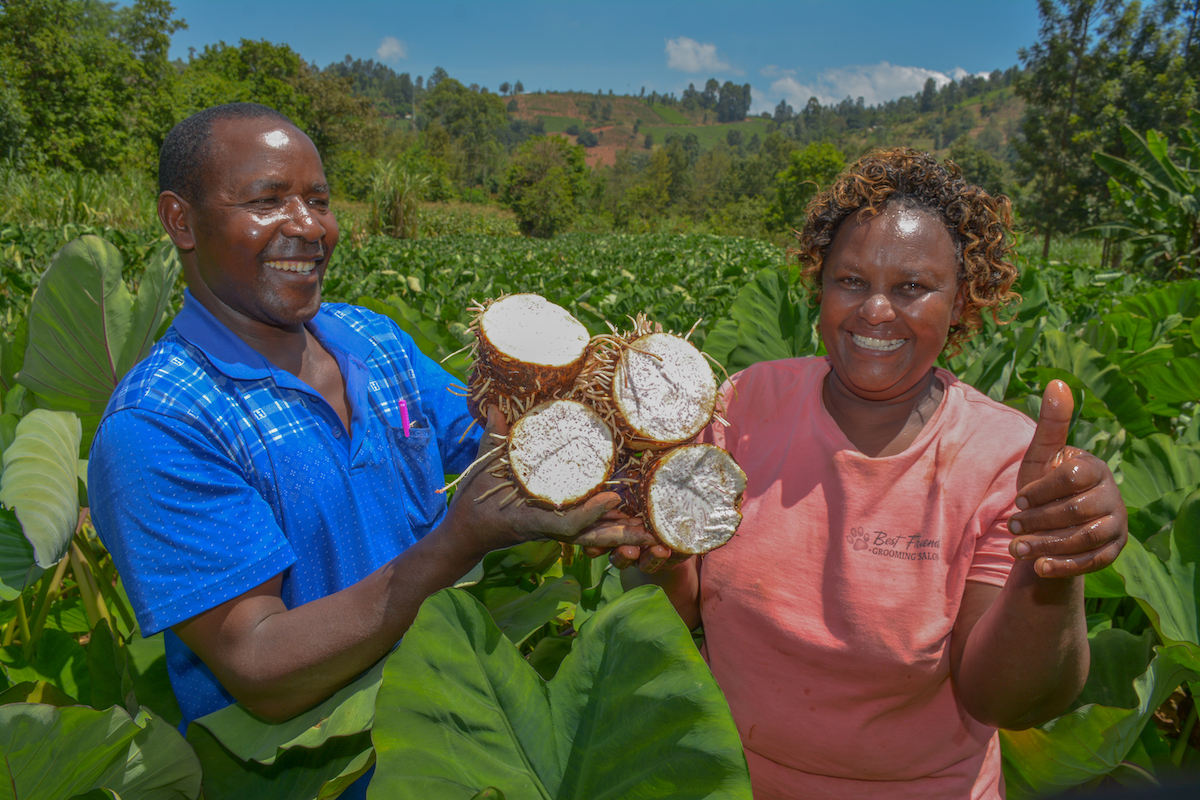
A bright future for Kenyan Coffee
Gibson Kinyua and Faith Wambui are a husband and wife team with more than 20 years of experience farming coffee in Nyeri, Kenya. Joining Solidaridad’s ‘Food Security through Improved Resilience of Smallholder Coffee Farmers in Ethiopia and Kenya’ (FOSEK) has transformed their farming operation.

Innovation Areas
Our innovative solutions
Driving sustainable impact
Solidaridad is a key player in developing innovative solutions to bring sustainable production to speed and scale in our target commodities to drive economic growth. Our sustainable production approaches are achieved by integrating digital innovations to reduce asymmetric information and enhance transformative finance to facilitate business growth. We also champion inclusivity to empower women and youth throughout the supply chain and promote approaches that enhance climate-resilience and sustainable landscape management. Our key results for 2021 are highlighted below.
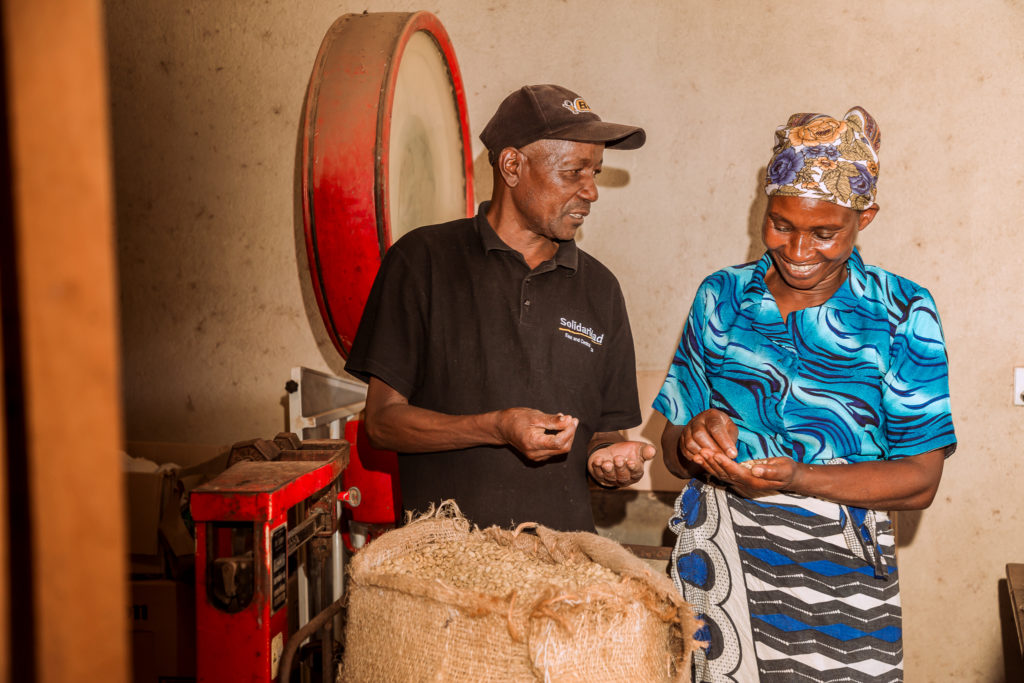
Solidaridad East and Central Africa developed and launched a five-year Gender and Social Inclusion Strategy (2021-2025). The strategy outlines the goal, and roadmap for the attainment and advancement of our inclusivity efforts. To further enhance our gender-responsive programming, nine gender analyses were conducted across the region to inform the design and implementation of gender-responsive interventions. We conducted in-house training on gender methodologies, such as Economic and Social Empowerment (EA$E) and Gender Action Learning System (GALS) through the Kaya platform. Twenty-one staff graduated and received a certification of participation.
In Uganda, we entered a seven-year partnership (2021-2027) with Crossroads International. Through this partnership, Solidaridad will undertake joint activities to champion and advance gender equality in the country. To increase visibility on gender issues, Solidaridad also participated in strategic events and forums, such as the Fairtrade Youth Convention 2021, International Women’s Day and 16 Days of Gender Activism. In addition, we developed publications to highlight gender-related milestones and challenges, and call for behavioral and systemic changes in our countries of operation. Our partnership engagement and fundraising efforts prioritized resource mobilization for gender and social inclusion. To support future fundraising efforts, a gender core team also received training in gender and social inclusion programme design and fundraising. Notable gains were realized with considerable budgetary allocation to gender personnel and activities in our recently awarded projects.
Our gender-specific SME Support Mechanism (GOWN) pilot accelerator programme was redesigned to incorporate capacity building, digital solutions and access to finance. Towards this end, Solidaridad developed ‘JiFunze’, a digital learning platform. This platform will support the continued peer-to-peer learning through knowledge sharing and management. In 2022, the accelerator programme will offer targeted training and link selected investment-ready MSMEs with impact funders including our own crowdfunding platform PlusPlus.
Through PlusPlus, we continued onboarding SMEs and disbursing loans in East Africa. A total of 11 applications from Kenya, Tanzania and Uganda were reviewed and considered. In 2021, two SMEs from Kenya and Uganda received funding valued at 50,000 Euros each (about Kshs 6.2 million) bringing the total of beneficiaries under Solidaridad East and Central Africa’s portfolio to three and our cumulative disbursements to 190,000 Euros (about Kshs 23.7 million). Three applications – Kenya (2) and Tanzania (1) each amounting to 50,000 Euros were under review at the end of 2021 while six applications were not successful.
During the same period, two business cases were developed for the EU-funded Green Tanning Initiative (GTI) project in Ethiopia. A pilot for chrome-free tanning and modernization and expansion for a public abattoir was one of the business cases. In addition, Kabirer (a coffee farmers’ cooperative in Kenya) received capacity building support to revive their Savings and Credit Organization (SACCO). A new steering committee was constituted and trained on management and member mobilization. The registered members rose from eight to 84 in three months. The new members registered and bought shares by selling coffee to the SACCO. In total, 4,200 Kgs of coffee were registered under the SACCO.
Towards making carbon markets more accessible for smallholder farmers, a total of 1,104 farmers in Uganda were enrolled onto the ACORN platform, 1,771 carbon removal units were generated and a total of 14,662 Euros (Kshs 1.8 million) in income gained by the participating farmers. The ACORN platform is an agroforestry program that unlocks the international voluntary carbon market for smallholder farmers. In 2022, Solidaridad will expand the programme’s outreach through other ongoing programmes including the DMDP-funded Traceable Organic Coffee from Kenya to enhance and incentivize agroforestry systems at the farm level.
To generate context-based evidence on the efficacy of our climate-smart options, three projects piloted the Climate Adaptation Index (CAI) tool. This resulted in multiple level participatory assessments that guided a menu of potentially suitable climate-smart practices that will be readily integrated into our beneficiaries’ current farming systems. Once implemented, these practices will deliver on our climate outcomes including greenhouse gas (GHG) emission reduction, carbon sequestration, climate adaptation and resilience, and other co-benefits that are appropriate for large-scale adoption.
Out of the 245,441 farmers reached through various interventions over the years, a significant number received site specific training on climate-smart practices (CSA) practices. As a result, at least 225,325 hectares across two to three commodities were under sustainable management in the several producer support projects under implementation. Additionally, our lead farmer and on-site demonstration plots approach served as training and sensitization tools, particularly in enhancing the adoption of related practices at the farm level.
Digital solutions have the potential to propel growth and increase incomes for smallholder producers. To this end, Solidaridad invests in a range of solutions with a view to create value for local producers. In 2021, we developed six digital solutions to enhance project management and information dissemination. Four of the solutions are in the pilot phase with a 70 percent adoption rate, two are in the minimum viable product (MVP) phase and one is ready for full adoption. The solutions are: Better Mill Initiative (BMI) Tool for our cotton and textile projects in Ethiopia; Tannery of the Future (TOTF) for our leather projects in Ethiopia; Jifunze our regional knowledge management and learning platform; PiMa our regional project management and dashboard platform; and Business Development System our business development and fundraising system, among others.
The Trace Bean-to-Cup project implemented by Solidaridad and Fairfood was approved and work in Uganda started in 2021. The project aims to strengthen the business case for traceability and transparency in the coffee supply chains in East Africa to ensure fair value distribution to stakeholders in producer countries. Through the Trace blockchain wallet, will enable users to do transactions with other Trace users, creating a decentralized log that will form the basis for the product story, and link users to enhance transparency and traceability, add value for market players and reward farmers for sharing data.
Solidaridad acquired a blockchain solution provider to facilitate the development of a data-driven innovation that will be deployed in our European Union-funded Passport to Coffee (PACE) and To Certification and Beyond projects in Tanzania. The use of blockchain aims to facilitate information sharing throughout the supply chain, increase trust between parties, lower production costs and enhance transparency between factories, farmers’ associations and cooperatives and their buyers.
Organization & governance
A strong foundation
Fostering an inclusive and innovative work environment
2021 saw our organization recommit to goals for nourishing an inclusive, innovative, and enjoyable working environment. These efforts touched every element of our organizational foundation, from human resources and integrity structures to learning and partnership development.
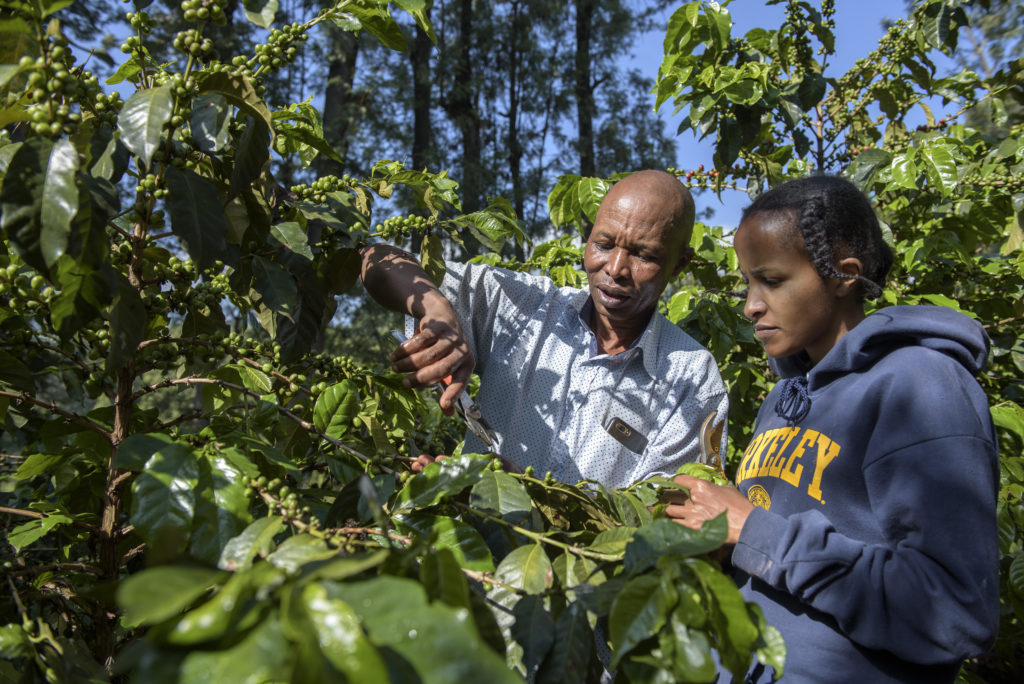
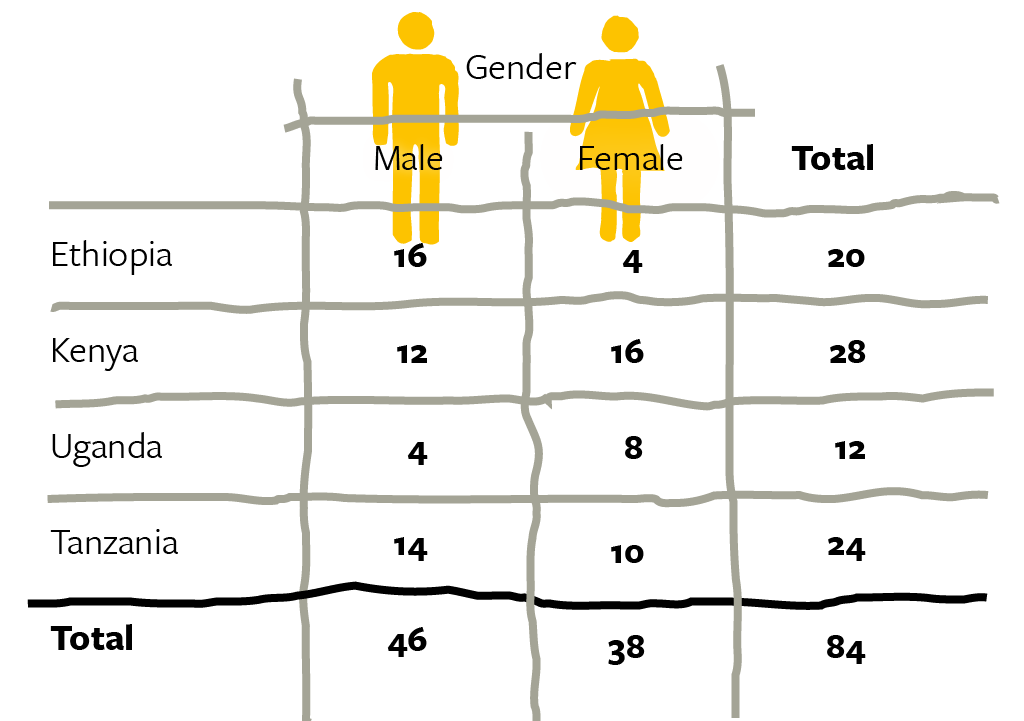
In 2021, we continued working towards developing a safe and rewarding working environment. Our efforts are aimed to foster a collaborative, results-focused and values-driven culture among our staff and partners. To strengthen our people and culture, we strived to attract, develop and retain diverse talent in our countries of operation.
In December 2021, our FTE stood at 84, of which 45% female.
To foster ongoing learning, organizational training will now be hosted on our new learning platform, Jifunze. The learning platform will be instrumental in dissemination of sector knowledge as part of building our organizational capacities – for both individual and team. In addition, to facilitate seamless implementation of our RECLAIM Sustainability! programme, 25 staff received training on advocacy and lobbying. The training focused on building internal capacities and building a pool of experts to lead our advocacy efforts as envisioned in our new strategy. In 2021, Solidaridad developed an internship programme which will enable young professionals to transition into the job market. Through this programme, Solidaridad will offer short-term work experience to successful candidates starting 2022.
In 2021, we sustained our proactive and reactive fundraising and resource mobilization efforts to raise funding for development initiatives. Eleven proposals and concepts were submitted for funding during the year, and 6,231,838 Euros secured through the successful bids. Our new projects include the World Bank-funded Ethiopian Dairy Farmers’ Bounty project in Ethiopia, Shell Foundation-funded Wezesha Wakulima – Promoting Bananas Enterprise in Tanzania, the Louis Dreyfus Foundation-funded Creating Shared Value in the Maize Value Chain in Kenya, and the Southern African Development Community (SADC)-funded Promoting a Competitive, Inclusive and Sustainable Leather Sector in Tanzania and Zimbabwe. In our quest to establish and sustain our partnership with donors and strategic partners, we deepened our engagement with the Dutch Embassies in Ethiopia, Kenya, Tanzania and Uganda, European Union, Comic Relief, Danida Market Development Partnerships (DMDP), Louis Dreyfus Foundation, and Syngenta among others. Outreaches and engagements with government agencies, and development partners such as the World Bank and International Fund for Agricultural Development (IFAD), among others were also prioritized.
Through our new green DMDP funding, we secured a new partnership with Twisted Leaf, a company that produces sustainable beverages brewed from coffee leaves. We also partnered with Rabobank to pilot a carbon farming project in Uganda. The ACORN Platform is an agroforestry program that unlocks the international voluntary carbon market for smallholder farmers. We are also an active member of the UN Global Compact – Kenya chapter to better align our efforts with the global framework, and contribute to sustainable business practices.
To ensure seamless Planning, Monitoring Evaluation & Learning (PMEL), foster accountability, and learning, we continued to develop and implement project aligned PMEL plans and project dashboards for projects across the region. In Kenya, Uganda and Ethiopia, our RECLAIM Sustainability! Programme finalized five baseline evaluations for coffee, gold, tea, cotton & textiles, and food products. Baseline surveys were also finalized for three new projects: Leather Initiative for Sustainable Employment Creation (LISEC) project in Ethiopia, Creating Shared Value in the Maize Value Chain Project in Kenya, and the Horticulture for Growth (H4G) project in Kenya.
In the same duration, we conducted final evaluations for the Food for All Project Kenya, Food Security through Improved resilience of smallholder farmers in Kenya and Ethiopia (FOSEK), Oromia Coffee and Dairy Development Project (OCCDP), PFC Evaluation-Ethiopia case study, a Geological Evaluation for ASM Tanzania and a Value Chain and Market Analysis for the Passport to Coffee Export (PACE) Project. The findings of these evaluations provided insights that will continue to inform program design, administration, effectiveness and additionality aspects of our works. These evaluations showed clear advantages from the three-tier training system where a large number of farmers were reached, increased satisfaction of farmers with their cooperatives, increased incomes paid through coffee cooperatives, adoption of diversification in farm enterprises among others. The evaluation by Aid Environment of tanneries under Green Tanning Initiative (GTI) showed that sustainable processing is happening, quality has improved, testing capacity has improved. Women and workers are empowered – attributable to Solidaridad.
On the other hand in some cases we noticed low adoption of good practices as demonstrated by continued use of mercury, child labour in mines, pollution and sub-standard working conditions in factories and mines. The continued use of mercury by ASM could be associated with its availability, affordability and effectiveness in gold extraction compared to its safer alternatives. More research is needed to reveal the extent of non adoption of good practices. These and other findings will inform the design and implementation of targeted interventions going forward. Throughout the year, Solidaridad used the data model in the development and administration of the evaluation tools.
As an organization dedicated to sustainable development, our ability to communicate, learn and inform sectors is a major predictor of our success. Solidaridad aims to grow its influence by creating a credible reputation as a thought leader and driver of change. In 2021, our efforts aimed to enhance our visibility, engagement, and credibility through a multifaceted approach. Our targeted activities and engagements were geared towards raising awareness on various issues and calling for collective action to drive and foster sustainable solutions to some of the region’s most pressing challenges. Solidaridad participated in national, regional and international dialogues on diverse themes. Through our participation in more than 10 webinars and events, we were able to contribute to important dialogues on gender and social inclusion, mercury-free artisanal gold mining, sustainable landscapes management, and climate smart agriculture.
We participated in joint campaigns and events, in collaboration with key stakeholders. During the International Coffee Day, we participated in national events with the view to draw attention to issues affecting producers. Our communication and visibility efforts were aimed at promoting practices such as good practices, diversification in coffee production with one of our notable milestones – the dairy business case implemented in three coffee cooperatives in Kenya- being lauded by multiple stakeholders as the way to go. Communication through our digital platforms, which connect us to our diverse audiences across the world, remained key for our targeted communications endeavors.
To foster a culture of ‘respect and integrity’, Solidaridad has developed a Code of Conduct that articulates the values we live by and describes specific rules to adhere to. As an organization, we strive to safeguard our integrity, prevent and respond to risks effectively. We therefore prioritize the development and implementation of policies and procedures to ensure they are fit-for-purpose and meet our due diligence standards. All our staff have signed the Code of Conduct.
To ensure adherence to our standards, we rolled out our new Whistleblower Protocol 2021 and sensitized our team. This protocol spells out the process to be followed when reporting, investigating and responding to misconduct and assigns roles to key individuals. It also seeks to clarify misconduct and encourage people to speak up/report cases. During the year, one incident was reported and investigations were underway as at December 2021. To further enhance transparency and curb future misconduct, training on the Code of Conduct will be undertaken in the first half of 2022 to ensure proper understanding of our internal control systems. This is envisaged to reinforce our approaches for identifying, assessing and addressing risks associated with misconduct.
Finance
The income for 2021 was EUR 7.4 million, an achievement of 96% of the budget. Despite the effects of the COVID-19 crisis and armed conflict in one of the countries, the main reason for this realisation was a wide range of fundraising and resource mobilisation strategies to attract funding for sustainable development initiatives.
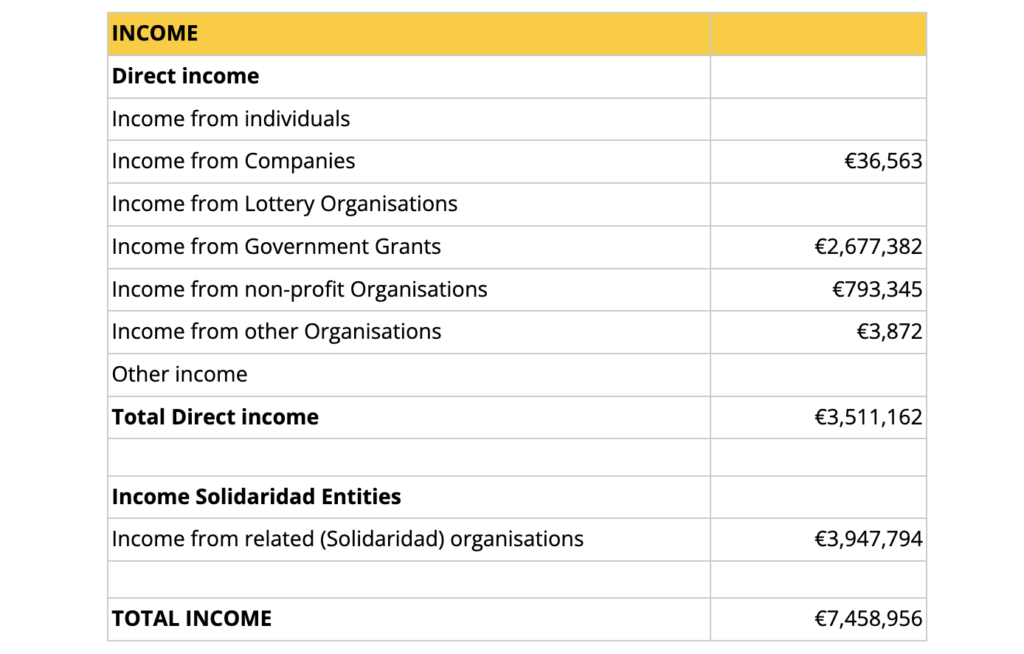
The implementation expenditure on the ground for 2021 was Euro 7.4 million, Euro 2.7 million (58%) higher than the previous year.
The region has a reserve fund of Euro 1.0 million and plans to increase it by 10% annually. There was a surplus of euros thirteen thousand in 2021, and the table below shows the financial results for the year.
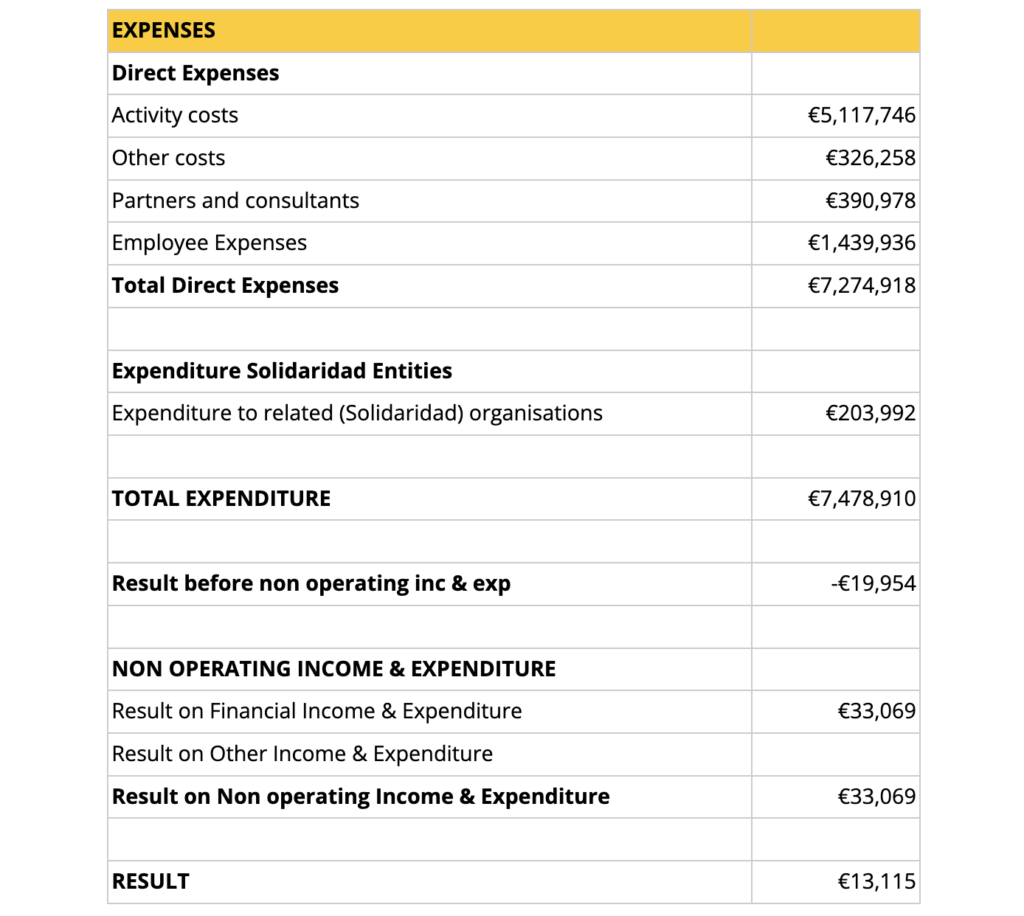
Audited statements can be found here: Solidaridad East and Central Africa Expertise Center (SECAEC)

